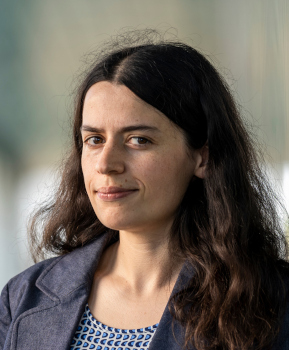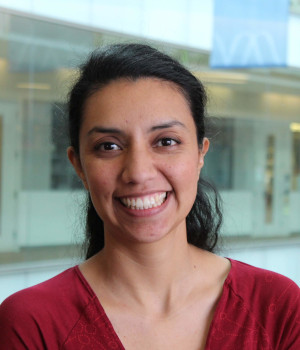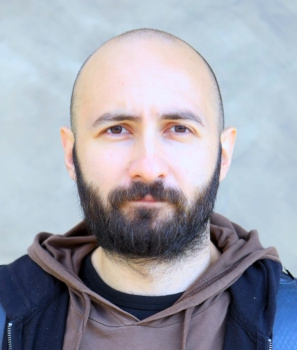 |
December 8th-12th
Centre Paul Langevin, Aussois, French Alps
|
|
|
|
|
About Evolutionary genomics and population genetics investigate patterns of genetic diversity between species or between populations within a species and play a fundamental role in many aspects, from theoretical facets of evolution to practical ones, such as conservation genetics and biomedical sciences. Methodologies have always been a strong interest of the community, from the development of mathematical models to the design of statistical inference tools, leading to numerous biological discoveries. These developments helped to adapt very quickly to the continuous influx of data, which has not only dramatically increased in quantity but also keeps changing in terms of quality and type. Among the methodological frameworks, machine learning has emerged as a promising way of analysing large and complex datasets. The application of AI, and particularly deep learning, to evolutionary genomics is still in its infancy while showing promising initial results. It is currently applied to a variety of tasks, such as the inference of demographic history, ancestry, natural selection, phylogeny, species delimitation and diversification. However, machine learning methods in evolutionary genomics and population genetics face unique challenges, including identifying appropriate assumptions about the evolutionary process and how to simulate it, and identifying the best ways to handle sequences, sequence alignments, phylogenetic trees, or additional information, such as geographical maps, temporal labels and environmental covariates. Overcoming these challenges requires a collaborative effort. The goal of this conference is to foster this effort by allowing interested researchers to meet and share their work. We held a previous edition of LEGEND in Heraklion in 2024 (see the presentation videos). The list of accepted papers is now available.
Keynote speakers
Key dates Registration opens: June 16th here Abstract submission opens (oral presentations and posters): August 25th 2025 [closed] Abstract submission deadline for oral presentations: September 22nd 2025 AoE Submissions can be made through the "New submission" link in the main menu on the left. This will require to create an account. Abstracts should be no more than 300 words. It should be clear from the abstract how the contribution used machine learning, and how it answers an evolutionary genomics question. [closed ]Deadline for applying to Funding Award (limited number; all registration fees, including food and accomodation, waived): September 22nd 2025 AoE Apply here [closed] Abstract submission deadline for posters: October 1st 2025 AoE (if your oral presentation is rejected we will automatically consider your submission for a poster, no need for a separate submission) Decision : October 6th 2025 [closed] Registration Deadline: October 17th 2025 AoE postponed to October 24th AoE (or upon reaching 80 registrations) here Conference: December 8th - 12th Even if the conference is booked before the registration deadline, we will be saving one registration slot for speakers of accepted oral presentations. If you are planning to attend whether or not you are selected for a presentation, we invite you to register as soon as possible. Practical information Online attendance is possible via the following Zoom links: Registration should be done through the azur colloque interface, where you will also be asked to pay the registration fees. The registration fees are 580€. They cover:
The conference itself will start in the morning of December 9th, and close on the evening of December 11th. A dinner will be served at arrival on December 8th, and a lunchbox will be provided on December 12th. We offer a limited number of free registrations to help include authors of accepted oral presentations and posters who could not attend otherwise. If you would like to apply, please do it here before the abstract submission deadline. The registration website is here. Accompanying family members (> 18yo) can register through the same link for 560€, covering housing, meals and transportation. Children less than 3yo can register through the same link for free. There is unfortunately no daycare option available at this time of the year, but we will put together a list of local recommandations of activities to do with a young child in the area. The Paul Langevin Center is primarily intended for family holidays and is perfectly suited to host young children. If you would like to bring along a child more than 3yo and less than 18yo please get in touch with us. On December 8th, the bus will leave from Lyon airport (LYS) at 3pm, stop at Modane (where there is a train station) at 5.30 pm and head to the Centre Paul Langevin in Aussois where it will arrive at 6pm. On December 12th it will leave from Aussois at 9.30am, stop at Modane at 10am and arrive at Lyon airport à 12.30. Organizers
Code of conduct (freely adapted from NeurIPS and ICML) The LEGEND conference aims at gathering the international community in machine learning for evolutionary genomics, in order to foster an exchange of ideas and a respectful scientific debate. Our objective is that anyone interested by these events can attend them comfortably and in particular without experiencing any form of harassement or discrimination (racist, sexist, homophobic, transphobic or ableist). Any witness or victim of such incidents or any other non-professional behavior can get in touch with the organizers. All complaints will be handled as confidentially as possible.
Sponsors This workshop is co-funded by:
|








